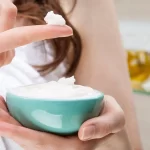Conditioning is a vital step in maintaining the health and softness of our hair. However, over-conditioning can sometimes lead to greasy and weighed-down hair, which can be frustrating. It is important to strike a balance between conditioning and avoiding excessive oiliness. In this essay, we will explore various tips for avoiding greasy hair from over-conditioning, allowing us to maintain a healthy and balanced scalp.
Understanding the Causes of Greasy Hair
- Excessive sebum production: Greasy hair is often caused by an overproduction of sebum, the natural oil produced by the sebaceous glands in the scalp. This can be influenced by factors such as hormones, genetics, and even weather conditions.
- Over-conditioning: Over-conditioning can contribute to greasy hair as well. Using heavy or overly moisturizing conditioners can leave a residue on the hair, weighing it down and making it appear greasy. It is important to find the right balance between conditioning and avoiding excessive oiliness.
- Improper conditioning techniques: Applying conditioner too close to the scalp and not rinsing it thoroughly are common mistakes that can lead to greasy hair. Conditioner should primarily be applied to the mid-lengths and ends of the hair, as these areas tend to be drier. It is crucial to rinse out the conditioner completely to prevent any residue from accumulating on the scalp.
- Product buildup: Using too many styling products or not properly removing them can result in product buildup on the scalp and hair. This buildup can trap oil and lead to greasiness. It is important to use products sparingly and make sure to thoroughly cleanse the hair and scalp to prevent product buildup.
- Over-washing or under-washing: Both over-washing and under-washing the hair can contribute to greasiness. Over-washing strips the scalp of its natural oils, causing it to produce even more oil to compensate. On the other hand, under-washing can lead to a buildup of oil and dirt, making the hair appear greasy. Finding the right balance and frequency of washing is key to avoiding greasy hair.
- Touching the hair frequently: Constantly touching or playing with the hair can transfer oil from the scalp to the strands, making the hair appear greasier. It is important to minimize touching the hair and avoid running your fingers through it excessively throughout the day.
By understanding the causes of greasy hair, we can take the necessary steps to prevent excessive oiliness. This includes choosing the right hair products, adopting proper conditioning techniques, avoiding product buildup, finding a suitable washing routine, and minimizing constant touching of the hair. With these measures, we can maintain a healthy scalp and enjoy hair that is free from greasiness.
Choose the Right Conditioner for Your Hair Type
Selecting the right conditioner for your hair type is crucial to avoid greasiness. If you have fine or oily hair, opt for lightweight, oil-free, or volumizing conditioners. These types of conditioners provide hydration without weighing down the hair or adding excess oil. On the other hand, if you have dry or damaged hair, you may need a more moisturizing conditioner. However, it is important to apply the conditioner primarily to the mid-lengths and ends of the hair, avoiding the scalp to prevent greasiness.
Condition the Hair Properly
Proper conditioning techniques can play a significant role in avoiding greasy hair. When applying conditioner, focus on the mid-lengths and ends of the hair, as these areas are more prone to dryness. Avoid applying conditioner directly to the scalp, as this can lead to excess oil production. Additionally, use a small amount of conditioner and distribute it evenly throughout the hair to prevent product buildup. It is also crucial to thoroughly rinse out the conditioner to ensure no residue is left behind.
Adjust the Frequency of Conditioning
- Oily hair: If you have naturally oily hair, you may need to condition less frequently. The sebaceous glands in your scalp produce more oil, so conditioning every other day or every few days can help prevent excess oiliness.
- Dry or damaged hair: If you have dry or damaged hair, you may need to condition more often to restore moisture and nourishment. Conditioning every time you wash your hair or even using a leave-in conditioner can help keep your hair hydrated and prevent dryness.
- Fine or thin hair: Fine or thin hair can become easily weighed down by excessive conditioning. In this case, it is best to use lightweight conditioners and avoid applying them too close to the scalp. Conditioning every few days or even once a week can be sufficient to avoid greasiness.
- Balancing act: Finding the right balance for your hair is essential. Pay attention to how your hair feels after conditioning. If it feels heavy, greasy, or looks flat, you may be over-conditioning. On the other hand, if your hair feels dry, frizzy, or lacks moisture, you may need to condition more often.
By adjusting the frequency of conditioning based on your hair type and needs, you can maintain a healthy balance and prevent greasiness. It is important to listen to your hair and make necessary changes to your conditioning routine to keep your hair soft, healthy, and free from excess oil.
Use Dry Shampoo
Dry shampoo can be a lifesaver for those dealing with greasy hair. It works by absorbing excess oil from the scalp, making the hair appear fresher and less oily. When using dry shampoo, apply it to the roots of the hair and gently massage it into the scalp. Allow it to sit for a few minutes before brushing or combing it through the hair. Dry shampoo can help extend the time between washes and reduce the need for excessive conditioning.
Maintain a Healthy Scalp
A healthy scalp is essential for avoiding greasy hair. Regularly washing your hair with a gentle shampoo helps to remove excess oil and maintain scalp health. It is important to use lukewarm water while washing, as hot water can stimulate the sebaceous glands and lead to more oil production. Additionally, avoid excessive brushing or touching of the hair, as this can transfer oils from the scalp to the hair strands.


